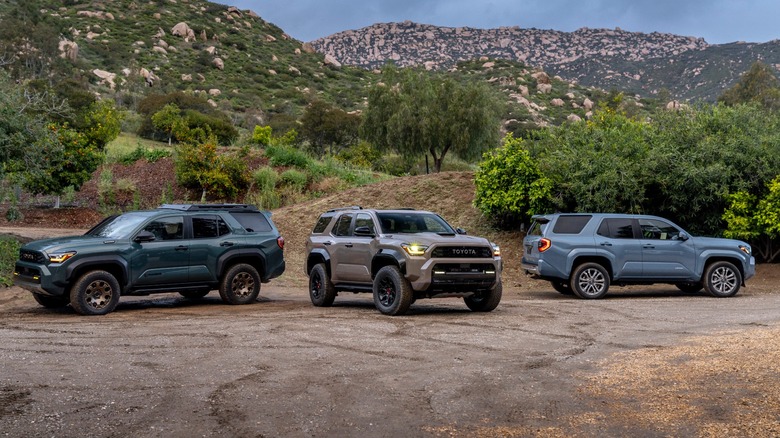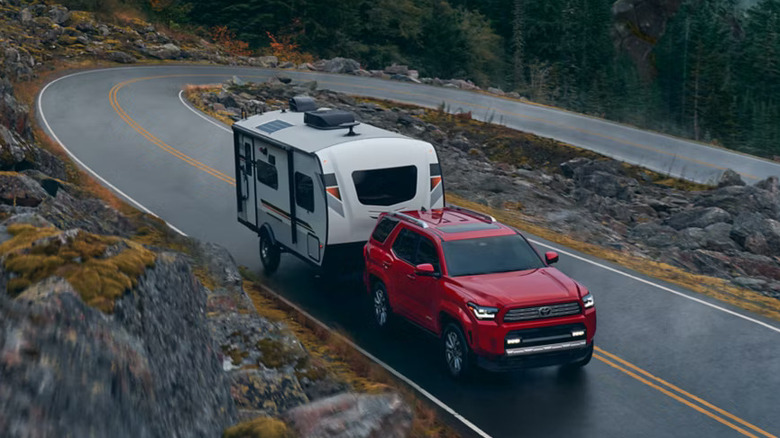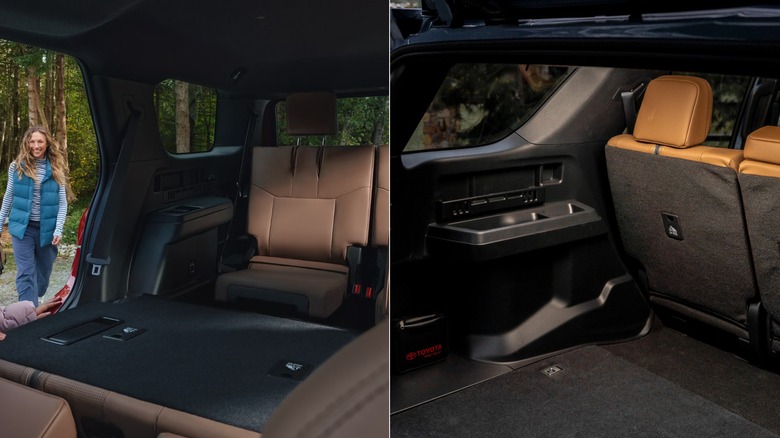Toyota 4Runner Hybrid Vs. Gas: Which Is Right For You?
It's the 4Runner's first major overhaul in over a decade. Bigger screens, tougher sheet metal, nine trims, and finally, a hybrid drivetrain. This is the same i-Force MAX powering the Land Cruiser Hybrid and the Tacoma, throwing down 465 lb-ft of torque and available in the new Trailhunter, TRD Pro, and Platinum trims. For the first time since 1984, Toyota 4Runner buyers must choose between two very different powertrains.
You'd think Toyota would be pushing people toward the 4Runner hybrid with it being new and all, yet the gas models still offer the most freedom. They're the only way to get 2WD or the seven-seat option. That extra third row matters for families, and no amount of torque can fold a seat that isn't there. At a time when rivals are figuring out how to package plug-in hybrid tech without deleting practicality, Toyota's move here has definitely ruffled some feathers.
However, calling the hybrid a mistake is a bad idea. For the right kind of driver — someone who tows, climbs, or lives in the low-end torque — the hybrid might be the better vehicle. But, if you're coming from a fifth-gen and just want "the same 4Runner, but new," the gas SR5 isn't a bad deal. We've driven both, and depending on what you need from your SUV, either one could be the right call.
The gas 4Runner still wins where the hybrid is supposed to
465 lb-ft of torque in a midsize SUV is impressive. Very few competitors even come close: the Ford Edge ST makes 380 lb-ft, the Grand Cherokee hybrid hits 390 lb-ft, and the Honda Passport manages a weak 262 lb-ft of torque. Toyota's own Highlander Hybrid only makes 310 lb-ft. That kind of muscle used to be reserved for full-size pickups.
So yes, the i-Force MAX gives the 4Runner some serious shove — especially off the line or when crawling on rocky terrain. However, it also brings baggage and doesn't even tow more than the gas model. That hybrid system piles on roughly a quarter ton of extra weight compared to the gas model, and most of it sits high in the chassis. SlashGear's off-road jump for the test showed how the extra weight can actually help stabilize landings, but it also means more body lean, more understeer, lower payload rating, and worse fuel economy than you'd expect from a "hybrid." The EPA gives the i-Force MAX trims just a 3 mpg bump in city driving, and worse mileage on the highway.
There's also the cost: The Hybrid trims start with the TRD Off-Road at $51,990, and only go up from there. Meanwhile, a rear-wheel drive gas SR5 starts around $42K and skips the weight-adding extras like full-time 4WD and the all-terrain rubber. Less kit means less weight, so the gas 4Runner squeezes out the fabled 26-mpg figure the MAX just can't reach.
You get more torque in the Toyota 4Runner Hybrid, but not the third row
You can thank the hybrid battery pack for the lack of third row. Toyota needed a place for the battery, so the rear seats got the eviction notice, and the cargo floor rose by a couple of inches. But unlike the Highlander Hybrid, which retains its third row even with the hybrid powertrain, Toyota didn't seem to rethink the packaging here. The battery bump means the lift-over is high and the floor is no longer flat, and the total cargo volume drops from 90.2 cubic feet in the gas model to just 82.6 cubic feet in the hybrid.
That difference matters: The flat cargo space and extra seats that made 4Runners of the past so reliable just aren't available here. And no, you can't pay your way out of it. Only the gas-powered SR5 and Limited trims offer the third row as an option — for $770 and $1,330, respectively.
The SlashGear team also noted this in their first drive, almost in passing, but it's a bigger deal than Toyota would likely be willing to admit. Families who relied on that just-in-case sixth and seventh seat now have to upgrade to a Sequoia, switch to the gas-only trims, or look higher in Toyota's lineup. It's not only about what the hybrid adds — it's also about what it quietly deletes. So before getting excited about the torque numbers, make sure you're not paying more to carry less.


